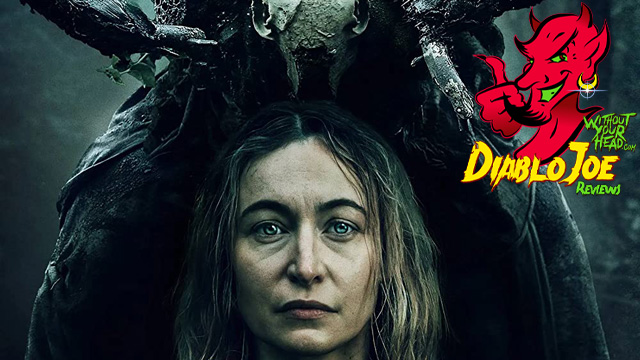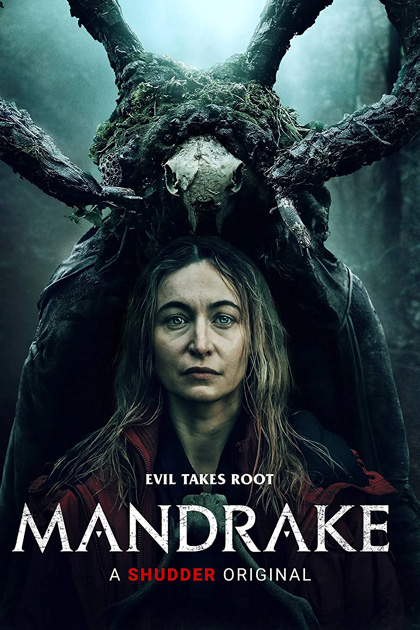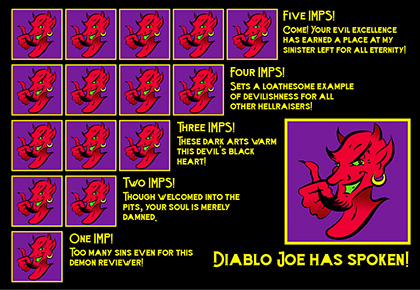

Thursday November 24, 2022 | Diablo Joe Reviews | Neal
"Mandrake"
review by Diablo Joe
"Mandrake"
Lynne Davison’s debut feature, “Mandrake,” is many things. Part folk horror, part crime procedural, part small-town gothic, and part mediation on motherhood, as a result, it’s also an often intensely frustrating film. Never quite nailing any one aspect satisfactorily, it is a film of potent performances, stunning visuals, and an effectively malevolent mood that seems to be lacking something vital.
“Bloody” Mary Laidlaw infamously killed her husband brutally after he tried to burn her alive. Now back in her small hometown and vilified as some sort of witch pariah, she has fallen under the supervision of Cathy Madden, her parole counselor. Meeting one another, Mary takes particular—and curiously insightful—interest in Cathy’s role as a mother in the custody she shares with her remarried ex. With the disappearance of two local children, this fascination begins to take a grimmer turn as Mary entwines Cathy in an elaborate ritual of shadowy purposes.
Is Mary genuinely tied to the black arts, or is she just crazy? “Mandrake” reveals its many layers as if peeling an onion. The more Matt Harvey’s script exposes, the more needlessly convoluted the story becomes. There’s just too much there—too many facets to Mary’s story that never fully coalesce. The film leaves its audience with a lot of questions. That, in and of itself, isn’t bad, but it seems Harvey is more interested in piquing our curiosity than resolving the puzzle he’s built. The result is that “Mandrake,” despite Davison’s otherwise assured directorial hand, seems clunky and over-laden.
Another critical issue is the character of Mary herself. The movie gives us a ton of backstory tidbits and curious insights into Mary, but, like so much else in the film, they don't seem to collect fully like so much else in the film. Mary is less of a fully realized character than a woman with a lot of intriguingly disturbing details. It’s a testament to Derbhle Crotty’s strong performance that Mary is as satisfying a presence as she is, and she modulates what little the page has given her to leave us genuinely unsettled.
The whole cast is terrific, as well. Deirdre Mullins is likewise excellent as Cathy. Her subtle sadness and resignation about her less-than-ideal family situation are played splendidly. Seamus O'Hara and Sara Dylan, as her ex-husband Thomas and his new wife, are both sympathetic and likable, complicating Cathy’s resentment of the pair’s relationship with her son, Luke.
Davison’s visual style is simply splendid throughout. Cinematographer Conor Rotherham’s photography always seems cold, damp, and slightly unwelcoming. This brooding, ominous mood is often punctuated by some startlingly memorable shots, particularly when Mary forces Cathy to dig for the titular root. It’s a gorgeous film to experience.
As frustrating as “Mandrake” is and as many games it seems to play with its folk-horror elements, it’s not a film that doesn’t deserve some attention. Had Harvey’s screenplay been pared back a little to concentrate on fleshing out a few key elements, the story itself would have driven some of its thematic elements harder home. But director Lynne Davison and her first-rate cast keep things together enough to make “Mandrake,” perhaps not a must-see, but a worthy watch nonetheless.
This devil of a reviewer gives “Mandrake” 3 out of 5 imps.

